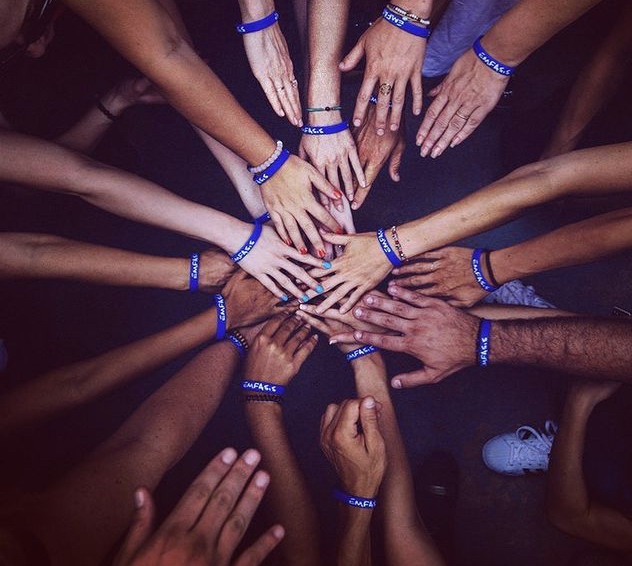A child needs encouragement like a plant needs water
~ Rudolph Dreikurs
A misbehaving child is a discouraged child
~ Alfred Adler
In today’s society we live in a “praise craze” society. There is a false belief that if we continuously tell children how fantastic they are that they will in turn have positive self-esteem. Therefore, it’s important to first look at some important definitions and understand the differences between these words:
Encouragement: (coeur: the french word for “heart”)
- to put courage in
- to inspire with spirit or hope
- to incite, spur on
- to cherish, sustain
- to give support, confidence, advice
- to help or stimulate
Discouragement:
- to take away the courage
- to dishearten
- to oppose by showing disfavour
- the feeling of despair in the face of obstacles
- the feeling that everything is wrong and nothing will turn out well
- the expression of opposition and disapproval
Praise:
- to speak highly of
- to commend
- to glorify (as in worship)
- the expression of approval and admiration
- the expression of respect and gratitude in religion
What Is The Difference Between Encouragement and Praise?
Encouragement is about the process – the journey, whereas praise is about the results.
Praise is evaluative – it judges and teaches children to look to others and seek external validation to hear that they are important.
On the other hand, encouragement fosters children believing in themselves. Encouragement uses words that notice and appreciate and are specific to the child and their experience at that moment vs. “Good job!”
Praise is a type of reward that children earn whereas encouragement is a gift. No one needs to earn it – it can be given for effort or improvement.
Encouragement teaches children to feel worthwhile just the way they are. This helps them to accept themselves, feel capable and in return have positive self-esteem.
Praise creates an expectation that can be hard to live up to. Eg. I made the gold team and my parents are so proud and think I’m great, what if I hadn’t made the team? Would they be disappointed in me?
Encouragement takes longer to say (Eg. “You’re getting better at your math facts all the time” vs. “Great job”) but it will teach your children to feel more confident in themselves.
Of course, there will be times when we say “You did such a great job!” “Awesome goal!” but if we can keep the differences in mind and try to use encouraging phrases more often than praise, we will see our children develop greater confidence in themselves.
The Language of Encouragement (Click for the pdf that you can print up for your fridge or on your desk)
- Thanks, that was a big help
- I trust your judgment
- This is a difficult problem, but I believe that you can work it out
- You worked hard on that!
- You’re getting better at writing all the time
- You can do it!
- You worked hard, you deserve it
- Look at all the colours you used on your picture
- Look how far you’ve come, you can do it
- You figured it out all by yourself
- I appreciate your help
- You must be proud of yourself
- How do you feel about it?
- I have faith in you to learn from your mistakes
- You can decide what’s best for you
- You did your best and you didn’t give up
- Look how much effort you put into that
- Do you have some suggestions?
- Tell me about it
- Let’s do it together
- That was really helpful
- Thanks for being with me
- I really enjoyed listening to you play
- I can see that you are having a lot of fun doing that
- I bet you feel good about that
- Way to go!
- It took courage to do what you did
- I’d like to hear your ideas
- It feels good when you succeed doesn’t it?
- Hang in there, you’re getting it
- Just look at the progress you’ve made
- That was a good effort, don’t worry about the mistake
Many Children Won’t Accept Praise
Many children have heard praise words such as “fantastic”, “excellent”, “great job” over and over again and therefore these words have lost their meaning.
It doesn’t sound authentic anymore.
Therefore, they respond much better to statements that are not so “over-the-top” such as: “That looks really interesting, tell me how you made that”, or “Look at the way you put all those pieces together”.
When thinking about the difference between praise and encouragement, imagine your child is running a race and what you say at the finish line is praise and what you say during the race is encouragement. Focus on the process and the effort.
Encouragement is providing opportunities for children to develop the perceptions:
“I am capable, I can contribute, and I can use my personal power in useful ways to improve my life and the lives of others.”
Good luck trying out this new language of encouragement and thank you for being part of this supportive, heart and mind community!
You may also be interested in reading my other article where I summarize the research of Carol Dweck on Mindset that was conducted with a group of four hundred 10 year olds. It’s fascinating! Click here to read the short summary.
Warmly,
Free Video On Developing Emotional Resilience
Want to Connect?
Subscribe now to receive free weekly parenting tips and inspiration.









3 thoughts on “Encouragement vs. Praise and the Importance of Knowing the Difference”
Comments are closed.